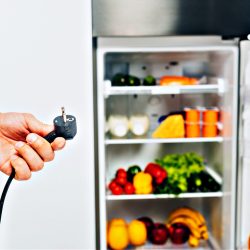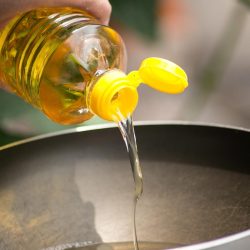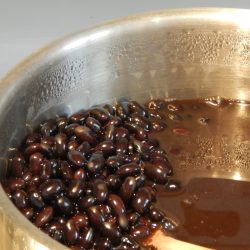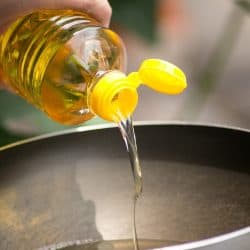It is vital to know what to do if your fresh basil leaves are turning black to ensure you get their full use and flavor of them. Would you like to know what to do if your fresh basil leaves turn black? Well, we have researched this topic and have the answers for you.
If you notice your fresh basil leaves are turning black, you should trim that section of the basil off and dispose of it. The black area on the basil leaves are dead cells, and their decay will spread if not trimmed off the herb.
In this article, we will discuss what to do if your fresh basil leaves turn black. We will also answer other interesting related questions: why do basil leaves turn black in the refrigerator, and is it okay to eat black basil? Keep reading to learn more.
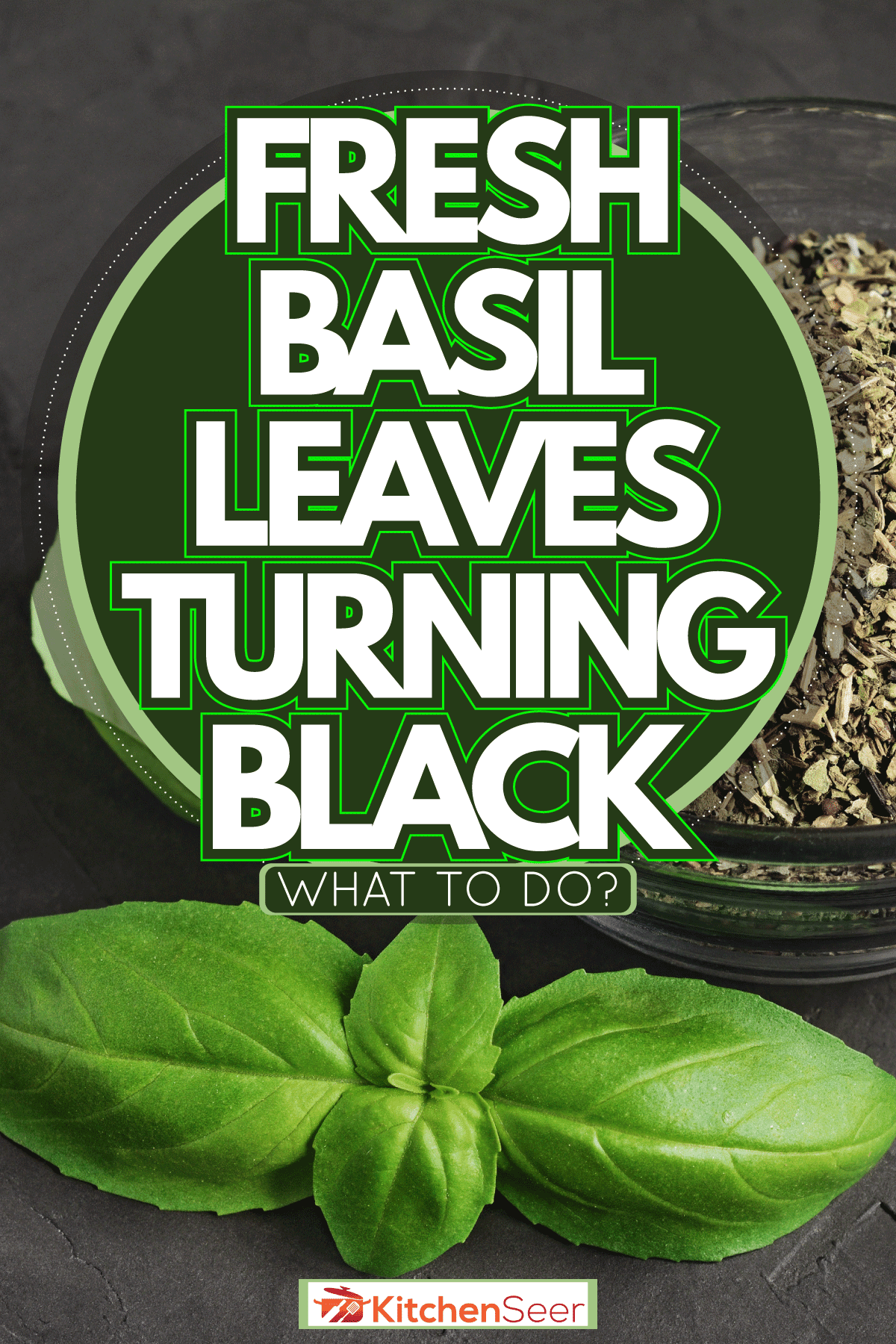
What Should I Do If My Fresh Basil Turns Black?
If you've ever purchased fresh basil leaves, you may have seen them turn black after a few days. This black is dead basil cells, and you now need to act fast if you want to save your plant.
The area of decay on the basil leaf will quickly spread to the rest of your basil bunch if you don't remove it. To remove the bad areas of basil, trim off black areas with kitchen scissors.
Check your basil bunch at least once a day and trim decaying parts of the leaves off. You will want to remove decay as soon as you see it appear to ensure that your basil has its longest shelf life in your refrigerator.
Colder places in your fridge will damage your basil, so you will want to place your basil away from these areas. The coldest place in your fridge is the back of your fridge, and basil kept in the back of the refrigerator will turn black faster than basil kept in the front.
Another good place in the fridge to store your basil is the door. The refrigerator's door is often warmer than the rest because it is furthest from the cooling element, and it warms as the door is opened throughout the day.
While we don't recommend storing dairy in the fridge door, this can be helpful for basil.
Even with trimming the parts of your fresh basil turning black and thoughtful placement in your fridge, it is unlikely your basil will last more than 3-4 days.
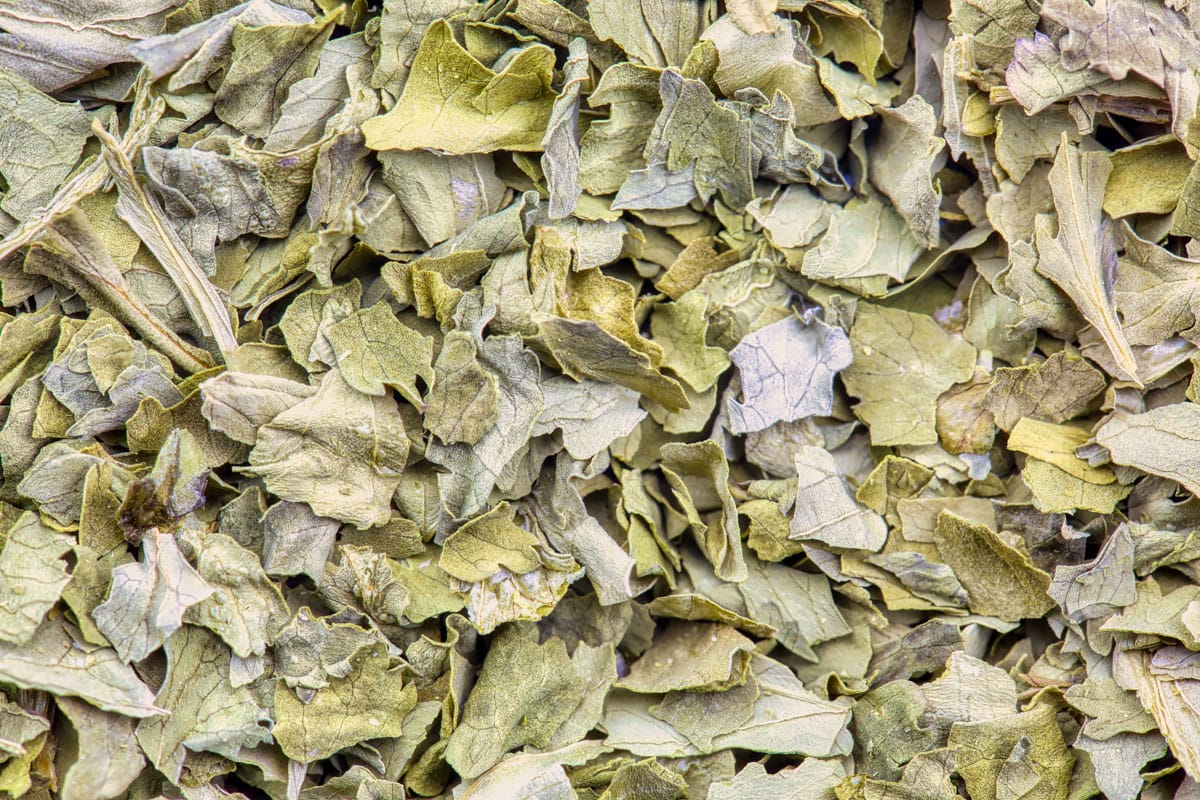
Why Do Fresh Basil Leaves Turn Black In The Refridgerator?
Fresh basil leaves turn black in the refrigerator because basil leaves are not very resistant to the cold. Basil leaves are known as a summertime herb that loves the heat.
When the cells in a basil leaf are exposed to the cold climate inside your refrigerator, they begin to die. It can take several days for the cells to die, so they don't turn black immediately.
As more basil leaf cells die, blackness spreads across the basil leaf. Since the cells are dead and can't fight bacteria anymore, bacteria begin to take over and eat the dead basil cells. The increase in bacteria leads to the leaf being slimy and bitter.
If these dead, bacteria-filled basil cells are left attached to the rest of the basil, then the bacteria can use their increased strength in numbers to spread and speed up the rate of the basil's decay.
It would be best if you still refrigerated basil to keep it from going bad despite the refrigerator's drawbacks. Basil leaves left out of the fridge will spoil within half a day.
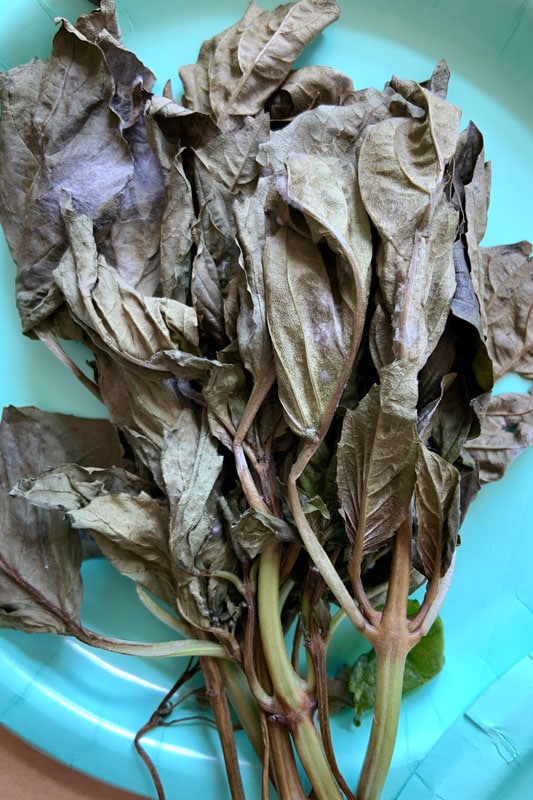
Is It Okay To Eat Black Basil?
Generally, it is not okay to eat black basil. Although doing this won't necessarily harm you, ingesting it can cause issues for your stomach. Let's dive into these potential side effects below:
Black Basil Is Full Of Bacteria
Black basil is black because the cells have died. Once the cells in a basil leaf die, they can no longer fight off bacteria, leading to bacteria entering the basil cells and creating decay.
These bacteria are usually harmless but can lead to a few health-related illnesses. One of the symptoms you are most likely to experience if you were to eat a black basil leaf is an upset stomach.
Eating a black basil leaf could hurt your stomach because of the bacteria on the leaf. Many strains of bacteria produce toxins they are immune to that are designed to make eating them unpleasant.
Black Basil Is Bitter
The other reason to avoid black basil is that it is bitter. The toxins created by many bacteria are toxic, but they also taste bitter.
The fact that bacterial toxins taste bitter is no accident. Humans' sense of taste primarily evolved to detect toxins in food.
If you were to add one of these black basil leaves into a meal, not only are you risking getting yourself or someone else sick, but you will likely ruin the meal with the black basil leaf's bitter taste.
What Are Alternatives To Keeping Basil In The Fridge?
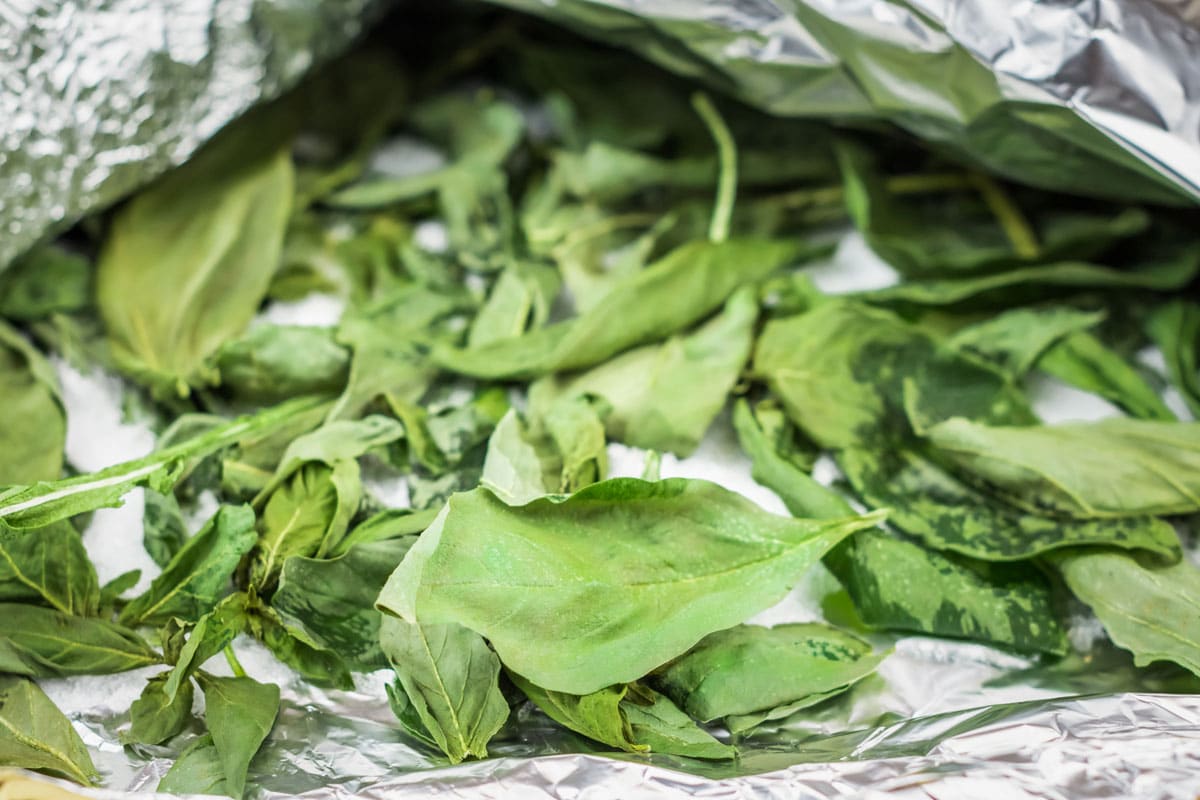
Since keeping basil in the fridge is so temperamental, even with trimming off decay, you may be wondering about alternatives to keeping basil in the refrigerator.
The two main alternatives for keeping basil in the fridge are keeping a live basil plant and freezing chopped basil leaves in oil. Let's take a look into these alternatives below:
Keeping A Live Basil Plant
One way to get around needing to keep basil in the fridge is a live basil plant. If you own a live basil plant, you would be able to cut off a small amount of basil as needed.
Since you would be getting your basil off the plant, the basil will be fresh. Many say using fresh basil from home gives a robust, richer basil taste to food that is lost when using week-old cut basil from a store.
One of the only drawbacks to keeping a living basil plant is that the plants need to be taken care of. Plants are alive and require food and water, and sunlight to grow. Plus, plants require specific amounts of sunlight, so that's something to remember.
For example, basil likes between six and eight hours of sunlight a day. If it gets less than six hours of sunlight, the leaves will be weak and yellowish. If the basil receives too much sunlight, the leaves will become singed and stunted by the sun.
Freezing Chopped Basil Leaves In Oil
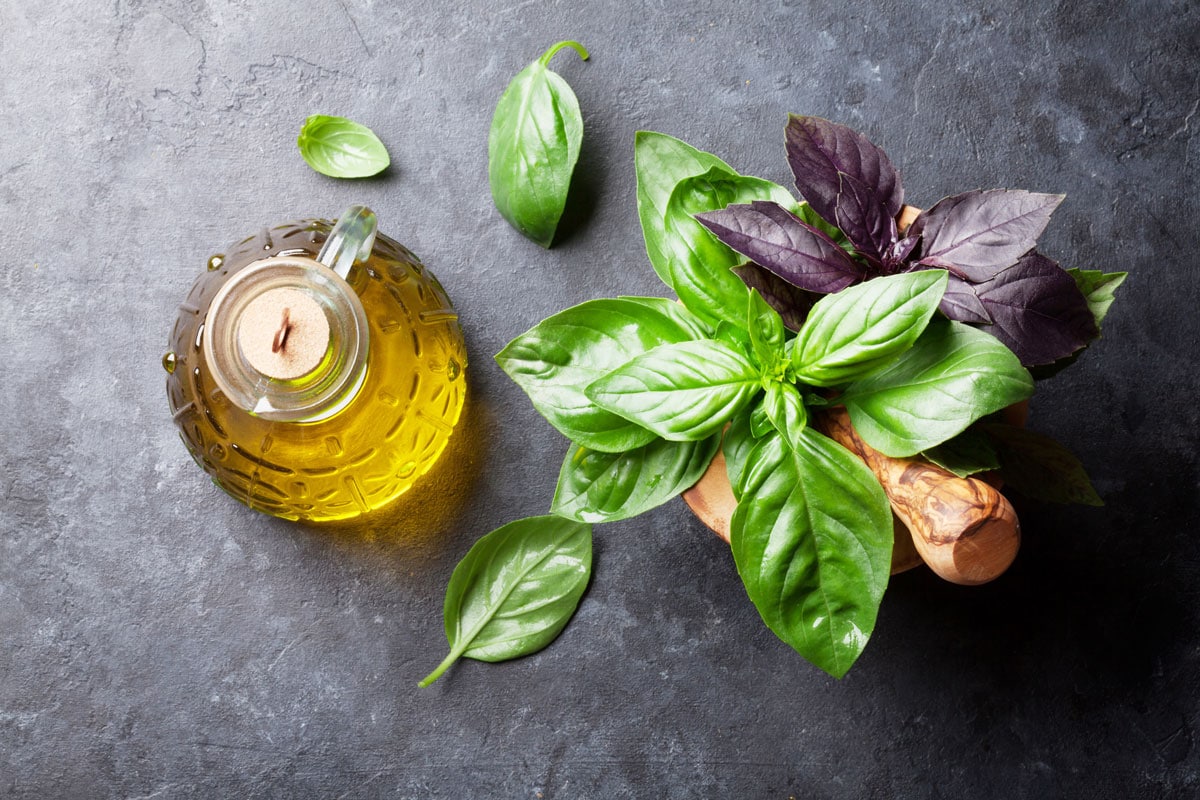
Another way to ensure basil for cooking is to freeze the basil leaves in oil. If you freeze the leaves, they will have a shelf life of up to a year. Frozen basil in oil is so shelf-stable you can use it to ensure you always have basil.
To freeze your basil, you need to chop it first. You can use coarsely or finely chopped basil, depending on your preferences. Once you chop your basil, combine it with several tablespoons of olive oil and place it into a plastic bag in the freezer.
You will need more olive oil the more basil leaves you are freezing, and the ratio should be roughly one tablespoon for each quarter cup of basil leaves. If you desire more or less olive oil, you can adjust the balance since the recipe is highly flexible.
To Wrap Up
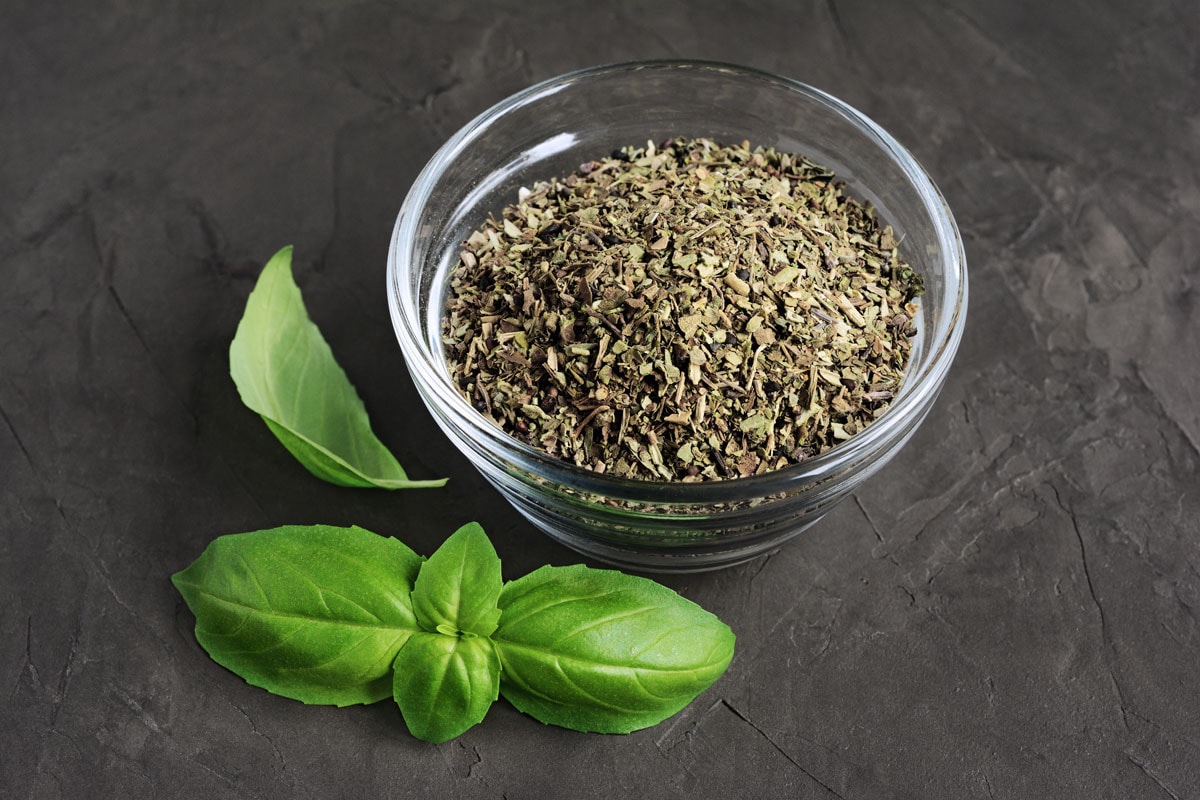
In this article, we learned if your basil leaves are turning black, you should trim off the decay to prevent it from spreading. We also learned that basil leaves turn black in the fridge because they are adapted for warm weather and die in cold conditions.
Remember, black basil leaves are full of bacteria and ruin the flavor of any dish they are added to.
Made it to the end? Check out these helpful related posts below!
Are Black Bananas Safe To Eat?
How Long Does Black Pepper Last?

![Fresh green basil on black wooden table, closeup. - How To Cook With Fresh Basil [6 Easy Recipes To Get You Started]](https://kitchenseer.com/wp-content/uploads/2022/10/Fresh-green-basil-on-black-wooden-table-closeup.-How-To-Cook-With-Fresh-Basil-6-Easy-Recipes-To-Get-You-Started-250x250.jpg)
